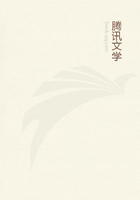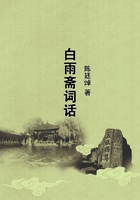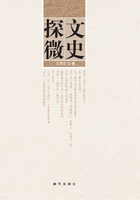9. TRUST is a passion proceeding from belief of him from whom we expect or hope for good, so free from doubt that upon the same we pursue no other way. And distrust, or diffidence, is doubt that maketh him endeavour to provide himself by other means. And that this is the meaning of the words trust and distrust, is manifest from this, that a man never provideth himself by a second way, but when he mistrusteth that the first will not hold.
10. PIty is imagination or fiction of future calamity to ourselves, proceeding from the sense of another man's present calamity; but when it lighteth on such as we think have not deserved the same, the compassion is the greater, because then there appeareth the more probability that the same may happen to us. For the evil that happeneth to an innocent man, may happen to every man. But when we see a man suffer for great crimes, which we cannot easily think will fall upon ourselves, the pity is the less. And therefore men are apt to pity those whom they love: for, whom they love, they think worthy of good, and therefore not worthy of calamity. Thence also it is, that men pity the vices of some they never saw before; and therefore every proper man finds pity amongst women, when he goeth to the gallows. The contrary of pity is HARDNESS of heart, proceeding either from slowness of imagination, or from extreme great opinion of their own exemption of the like calamity, or from hatred of all, or most men.
11. INDIGNATION is that grief which consisteth in the conception of good success happening to them whom they think unworthy thereof. Seeing therefore men think all those unworthy whom they hate, they think them not only unworthy of the good fortune they have, but also of their own virtues. And of all the passions of the mind, these two, indignation and pity, are most easily raised and increased by eloquence; for the aggravation of the calamity, and extenuation of the fault, augmenteth pity. And the extenuation of the worth of the person, together with the magnifying of his success (which are the parts of an orator), are able to turn these two passions into fury.
12. EMULATION is grief arising from seeing one's self exceeded or excelled by his concurrent, together with hope to equal or exceed him in time to come, by his own ability. But, ENVY is the same grief joined with pleasure conceived in the imagination of some ill fortune that may befall him.
13. There is a passion which hath no name, but the sign of it is that distortion of the countenance we call LAUGHTER, which is always joy, but what joy, what we think, and wherein we triumph when we laugh, hath not hitherto been declared by any. That it consisteth in wit, or, as they call it, in the jest, this experience confuteth: for men laugh at mischances and indecencies, therein there lieth no wit or jest at all. And forasmuch as the same thing is no more ridiculous when it groweth stale or usual, whatsoever it be that moveth laughter, it must be new and unexpected. Men laugh often (especially such as are greedy of applause from every thing they do well) at their own actions performed never so little beyond their own expectation; as also at their own jests: and in this case it is manifest, that the passion of laughter proceedeth from a sudden conception of some ability in himself that laugheth. Also men laugh at the infirmities of others, by comparison of which their own abilities are set off and illustrated. Also men laugh at jests, the wit whereof always consisteth in the elegant discovering and conveying to our minds some absurdity or another. And in this case also the passion of laughter proceedeth from the sudden imagination of our own odds and eminence; for what is else the recommending ourselves to our own good opinion, by comparison with another man's infirmities or absurdity? For when a jest is broken upon ourselves, or friends of whose dishonour we participate, we never laugh thereat. I may therefore conclude, that the passion of laughter is nothing else but a sudden glory arising from sudden conception of some eminency in ourselves, by comparison with the infirmities of others, or with our own formerly: for men laugh at the follies of themselves past, when they come suddenly to remembrance, except they bring with them any present dishonour. It is no wonder therefore that men take it heinously to be laughed at or derided, that is, triumphed over.
Laughter without offence, must be at absurdities and infirmities abstracted from persons, and where all the company may laugh together. For laughing to one's self putteth all the rest to a jealousy and examination of themselves; besides, it is vain glory, and an argument of little worth, to think the infirmities of another sufficient matter for his triumph.
14. The passion opposite hereunto, whose signs are another distortion of the face with tears, called WEEPING, is the sudden falling out with ourselves, or sudden conception of defect; and therefore children weep often; for seeing they think every thing ought to be given unto them which they desire, of necessity every repulse must be a sudden check of their expectation, and puts them in mind of their too much weakness to make themselves masters of all they look for. For the same cause women are more apt to weep than men, as being not only more accustomed to have their wills, but also to measure their power by the power and love of others that protect them. Men are apt to weep that prosecute revenge, when the revenge is suddenly stopped or frustrated by the repentance of the adversary; and such are the tears of reconciliation. Also pityful men are subject to this passion upon the beholding of those men they pity, and suddenly remember they cannot help. Other weeping in men proceedeth for the most part from the same cause it proceedeth from in women and children.

